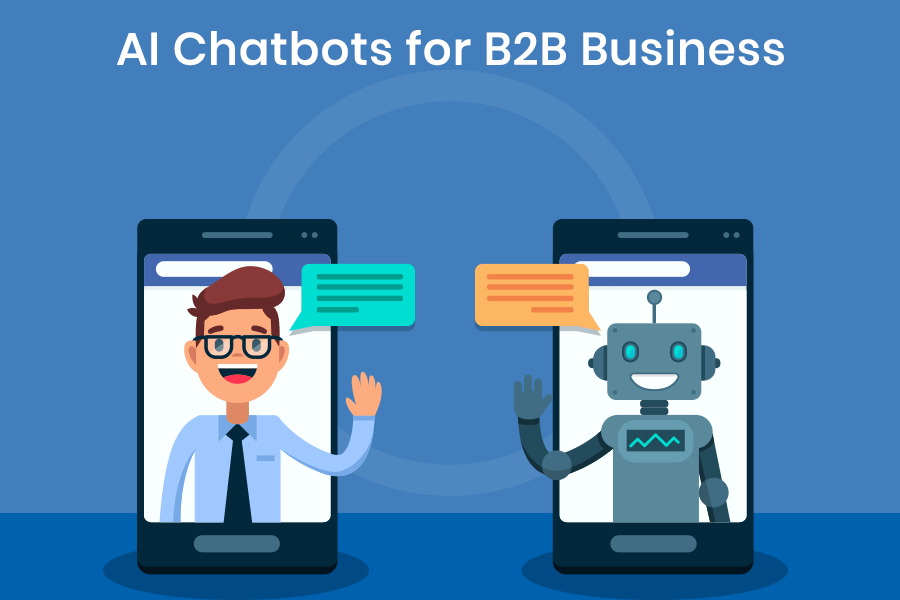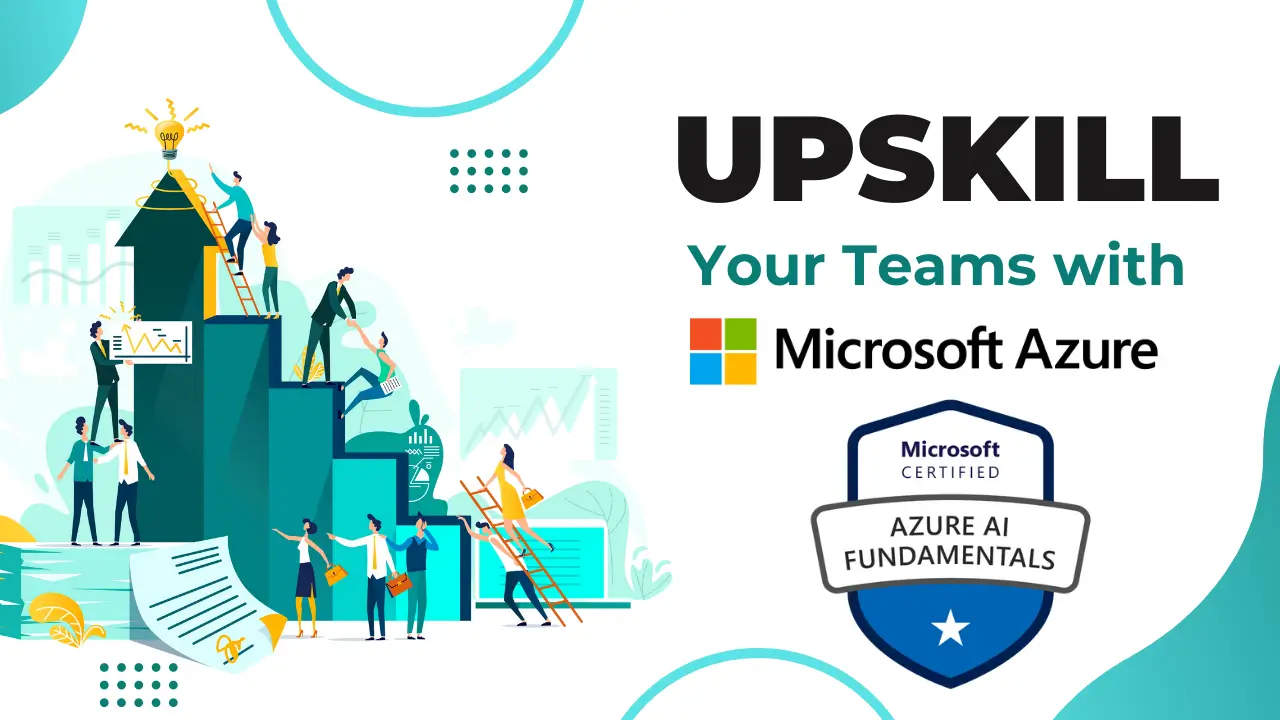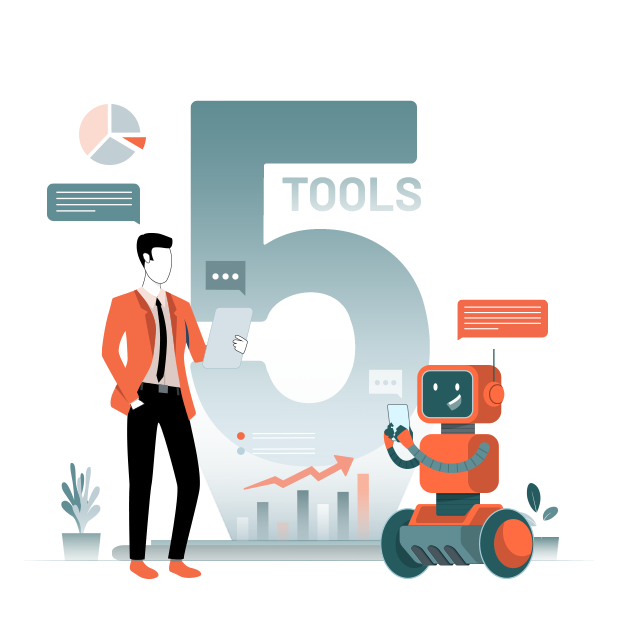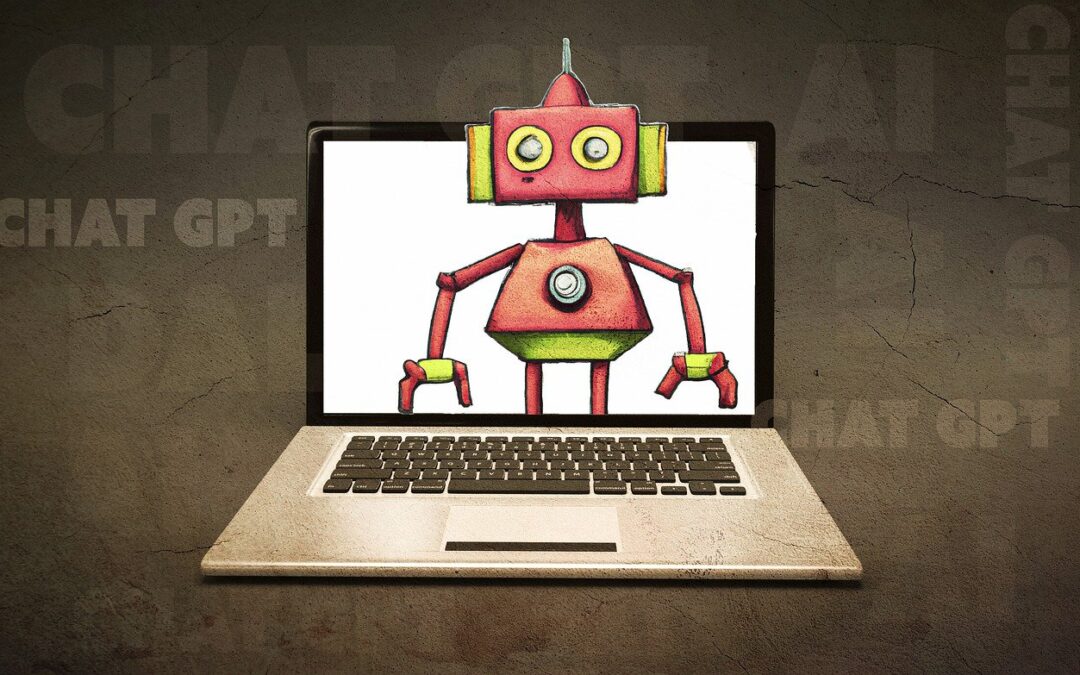In today’s rapidly evolving business landscape, companies are increasingly turning to artificial intelligence (AI) chatbots to streamline their customer interactions. However, for B2B teams, collaborating effectively with these AI chatbots can be a challenge. That’s where the innovative product, “Upskilling B2B Teams To Collaborate With AI Chatbots,” comes in. This groundbreaking solution empowers B2B teams to enhance their skills and seamlessly integrate with AI chatbots, resulting in improved efficiency, enhanced customer service, and ultimately, increased business success.

This image is property of botcore.ai.
1. Understanding the Role of AI Chatbots in B2B
1.1 What are AI chatbots?
AI chatbots are computer programs powered by artificial intelligence technology that are designed to simulate human-like conversations and provide automated responses to user queries. These chatbots can be integrated into various communication channels, such as websites, messaging platforms, and mobile applications, to assist users with their inquiries and provide personalized recommendations or solutions.
1.2 Benefits of AI chatbots in B2B
The use of AI chatbots in the B2B context offers several benefits for businesses. Firstly, chatbots can handle repetitive and mundane tasks, such as answering frequently asked questions or processing routine transactions, allowing human employees to focus on more complex and strategic activities. This increased efficiency and productivity can lead to cost savings and improved customer satisfaction.
Additionally, AI chatbots can provide 24/7 support, ensuring that customers and clients receive timely assistance even outside of regular business hours. This can be particularly valuable for B2B companies operating in multiple time zones or serving international clients.
Furthermore, AI chatbots can collect and analyze data from interactions with users, providing valuable insights into customer behavior, preferences, and needs. This data can be utilized to enhance marketing strategies, personalize customer experiences, and identify potential upselling or cross-selling opportunities.
1.3 The evolving role of AI chatbots in B2B
The role of AI chatbots in B2B is continuously evolving, driven by advancements in artificial intelligence technology and changing customer expectations. While currently, AI chatbots are predominantly used for basic customer support and information dissemination, they have the potential to play a more significant role in areas such as sales, lead generation, and customer relationship management.
As AI technologies, such as natural language processing and machine learning, continue to improve, chatbots can become even more proficient in understanding and responding to complex queries and engaging in more human-like conversations. This evolution opens up new opportunities for B2B teams to leverage chatbots for more strategic purposes, such as lead nurturing, personalized marketing campaigns, and predictive analytics.
2. Identifying the Skills Gaps
2.1 Current skill set of B2B teams
Before upskilling B2B teams to collaborate effectively with AI chatbots, it is crucial to assess the current skill set of the teams. B2B teams typically consist of individuals with diverse skills, including sales, marketing, customer service, and technical expertise. However, in many cases, these teams may not possess the necessary knowledge or experience in AI technologies and chatbot integration.
2.2 Analyzing the skill gaps for AI chatbot collaboration
Analyzing the skill gaps is crucial to determine the specific areas where upskilling is required. Some key skill gaps for AI chatbot collaboration may include:
-
Technical skills: B2B teams may lack the technical knowledge required to understand AI technologies, chatbot development, and integration processes. This includes familiarity with programming languages, data analytics, and cloud computing.
-
Soft skills: Effective collaboration with AI chatbots also requires the development of soft skills, such as adaptability, problem-solving, and communication. B2B teams must be able to navigate the evolving role of AI chatbots and effectively communicate and coordinate with these digital assistants.
-
Domain expertise: Depending on the industry or sector the B2B teams operate in, they may need to acquire specific domain expertise to train the chatbots effectively. This could include knowledge of industry-specific terminologies, regulations, and customer preferences.
Identifying these skill gaps will guide the development of Training programs tailored to meet the specific needs of B2B teams in integrating AI chatbots into their workflows.
3. Training Needs for B2B Teams
3.1 Understand the basics of AI and chatbot technology
To effectively collaborate with AI chatbots, B2B teams must develop a foundational understanding of AI and chatbot technology. This includes knowledge of the different types of AI, such as machine learning and natural language processing, as well as an understanding of how chatbots are developed and trained.
Training programs should cover topics such as:
- Introduction to AI and its applications in business
- Fundamentals of chatbot development and architecture
- Data preprocessing and training techniques for chatbots
- Ethical considerations in AI chatbot interactions
By gaining a basic understanding of the technology behind AI chatbots, B2B teams will be better equipped to collaborate with and utilize these digital tools effectively.
3.2 Developing technical skills for AI chatbot integration
Building technical skills is essential for B2B teams to successfully integrate AI chatbots into their workflows. This involves training in areas such as programming languages (e.g., Python or Java), data analytics, and cloud computing.
Training programs for developing technical skills may include:
- Programming languages for chatbot development
- Data management and analysis for training chatbots
- Cloud platforms for hosting and deploying chatbots
- API integration for seamless communication with existing systems
By acquiring technical skills, B2B teams will be capable of managing chatbot implementation, data integration, and customization to meet specific business needs.
3.3 Enhancing soft skills for effective collaboration
Upskilling B2B teams to collaborate with AI chatbots also entails the development of soft skills necessary for effective collaboration and communication. This includes skills such as adaptability, critical thinking, problem-solving, and empathy.
Training programs focused on enhancing soft skills may cover:
- Effective communication strategies with AI chatbots
- Problem-solving techniques in collaboration with chatbots
- Adaptability to changing roles and responsibilities
- Empathy and understanding in customer interactions
By investing in the development of soft skills, B2B teams can maximize their collaboration with AI chatbots and ensure seamless integration within their existing workflows.
4. Providing AI Chatbot Training
4.1 Partnering with AI chatbot developers
One approach to provide AI chatbot training for B2B teams is to partner with AI chatbot developers or specialists in the field. These developers have the expertise and experience necessary to educate B2B teams about chatbot development, deployment, and best practices.
Through partnerships, organizations can benefit from customized training programs tailored to their specific needs. This may include on-site workshops, webinars, or mentorship programs led by professionals with hands-on experience in chatbot development.
4.2 Setting up internal training programs
Organizations can also establish internal training programs to upskill their B2B teams in collaboration with AI chatbots. Internal training programs offer several advantages, such as flexibility, scalability, and the ability to align training with organizational goals and objectives.
Internal training programs may include:
- In-house training sessions delivered by subject matter experts
- Online courses or e-learning platforms focused on AI and chatbot technologies
- Team-based projects and assignments to reinforce learning
By utilizing internal resources and expertise, organizations can provide cost-effective and tailored training programs to upskill their B2B teams in-house.
4.3 Leveraging external training resources
In addition to internal training programs, organizations can also leverage external training resources to further enhance the skills of their B2B teams. Online training platforms, industry conferences, and professional development courses can offer valuable insights and knowledge in AI chatbot collaboration.
By exposing B2B teams to a broader range of training resources, organizations can ensure that their teams stay up to date with the latest developments in AI chatbot technology and industry best practices.

This image is property of www.tecocraft.com.
5. Promoting a Culture of Collaboration
5.1 Encouraging open-mindedness towards AI chatbot technology
To foster effective collaboration between B2B teams and AI chatbots, organizations must promote a culture of openness and acceptance towards AI technology. This involves creating an environment where team members are encouraged to explore and experiment with AI chatbots without fear of judgment or resistance.
Leadership plays a crucial role in promoting open-mindedness by championing the benefits of AI chatbots and highlighting their potential to augment human capabilities rather than replace them. By emphasizing the value of collaboration between humans and AI chatbots, organizations can overcome resistance and foster a culture of collaboration.
5.2 Fostering teamwork between B2B teams and AI chatbots
Successful collaboration with AI chatbots relies on teamwork and effective communication between B2B teams and the digital assistants. Organizations should encourage cross-functional collaboration, where different teams work together to develop and refine chatbot functionalities.
This can be achieved through regular meetings, brainstorming sessions, and joint projects that involve collaboration between B2B teams and AI chatbot developers. Cross-functional collaboration allows teams to share their expertise, provide insights into customer needs, and fine-tune the chatbot’s performance based on real-world scenarios.
5.3 Facilitating knowledge sharing and cross-training
To promote collaboration, organizations should facilitate knowledge sharing and cross-training between B2B teams and AI chatbot specialists. This involves organizing training sessions, workshops, or knowledge-sharing sessions where B2B teams can learn from AI experts and vice versa.
By fostering a culture of continuous learning and cross-training, organizations can enhance the collaborative capabilities of their B2B teams and ensure that the integration of AI chatbots is optimized for maximum effectiveness.
6. Overcoming Resistance and Challenges
6.1 Addressing fears and misconceptions about AI chatbots
Resistance to AI chatbots often stems from fears and misconceptions about their impact on job security and human interaction. To overcome these challenges, organizations should take proactive measures to address these fears and provide accurate information about the role of AI chatbots.
Transparent communication that emphasizes the collaboration aspect of AI chatbots and the value they bring to B2B teams can alleviate concerns and build trust among employees. Demonstration of how AI chatbots can enhance job roles, reduce repetitive tasks, and enable employees to focus on higher-value activities can help overcome resistance.
6.2 Managing resistance to change
Resistance to change is a common challenge faced when introducing AI chatbots in the workplace. To manage resistance effectively, organizations should invest in change management strategies that involve clear communication, stakeholder involvement, and comprehensive training programs.
By involving employees in the decision-making process and providing opportunities for feedback and input, organizations can create a sense of ownership and empowerment. Additionally, providing ongoing support and addressing concerns throughout the implementation process can help alleviate anxiety and resistance to change.
6.3 Dealing with potential ethical considerations
The integration of AI chatbots in B2B environments raises ethical considerations that need to be addressed. Organizations must ensure that AI chatbots are programmed with ethical guidelines and adhere to legal and privacy regulations. This includes handling sensitive customer data, providing transparent information about data usage, and maintaining confidentiality.
Creating robust ethical frameworks, conducting regular privacy audits, and implementing data protection measures can help mitigate ethical concerns and maintain trust among customers and clients.

This image is property of www.whizlabs.com.
7. Monitoring and Evaluation
7.1 Establishing performance indicators
To assess the impact of upskilling initiatives, organizations should establish performance indicators to measure the effectiveness of B2B teams in collaboration with AI chatbots. These performance indicators may include metrics such as customer satisfaction ratings, response times, task completion rates, and sales conversions.
By setting clear performance indicators, organizations can track the progress of upskilling initiatives, identify areas for improvement, and measure the return on investment in AI chatbot integration.
7.2 Tracking the impact of upskilling on business outcomes
In addition to performance indicators, organizations should track the impact of upskilling B2B teams on broader business outcomes. This includes monitoring key business metrics such as revenue growth, cost savings, and customer retention rates.
By analyzing business outcomes, organizations can evaluate the effectiveness of upskilling efforts in improving overall performance and achieving strategic objectives.
7.3 Continuous improvement and adjustment
Monitoring and evaluation should be an ongoing process to ensure continuous improvement in the collaboration between B2B teams and AI chatbots. By soliciting feedback from employees and customers, organizations can identify areas for improvement, address challenges, and refine training programs and chatbot functionalities.
Regular review and adjustment of training initiatives and chatbot integration strategies based on feedback and data analysis will enable organizations to optimize the collaboration between B2B teams and AI chatbots continually.
8. Case Studies of Successful B2B Teams
8.1 Companies that have embraced AI chatbot collaboration
Several companies in the B2B space have successfully embraced AI chatbot collaboration and reaped the benefits. One such company is XYZ Corporation, a global technology solutions provider. XYZ Corporation integrated AI chatbots into their customer support system, enabling automated responses to customer inquiries and assistance with troubleshooting. This has resulted in significant cost savings and improved customer satisfaction, as customers receive prompt and accurate support round the clock.
Another example is ABC Consulting, a management consulting firm. ABC Consulting deployed an AI chatbot to assist their sales team in lead generation and qualification. The chatbot engages with potential clients, gathers relevant information, and provides qualified leads to the sales team, enabling them to focus their efforts on high-potential prospects. This has led to increased sales productivity and improved conversion rates for ABC Consulting.
8.2 Lessons learned from their experiences
From these case studies, several valuable lessons can be learned. Firstly, successful collaboration with AI chatbots requires a clear understanding of the specific business needs and objectives. Organizations must identify key areas where chatbots can add value and tailor their integration strategies accordingly.
Secondly, effective training and upskilling are critical for realizing the full potential of AI chatbots. Both technical and soft skills development are essential to ensure that B2B teams can leverage chatbots effectively and drive positive business outcomes.
Lastly, ongoing monitoring and evaluation are essential to measure the impact of AI chatbot collaboration and make necessary adjustments. By regularly reviewing performance and gathering feedback, organizations can continuously improve their chatbot integration strategies and optimize the collaboration between B2B teams and AI chatbots.

This image is property of www.neoito.com.
9. Looking Towards the Future
9.1 Emerging trends in AI chatbot technology
The future of AI chatbot technology is promising, with several emerging trends on the horizon. One such trend is the integration of voice recognition technology, enabling chatbots to engage in voice-based conversations with users. This opens up new possibilities for more natural and intuitive interactions and further enhances the user experience.
Another emerging trend is the integration of chatbot platforms with other AI technologies, such as machine learning and predictive analytics. This enables chatbots to learn from user interactions, anticipate their needs, and provide more personalized recommendations or solutions.
9.2 Anticipating future skills requirements
As AI chatbot technology continues to evolve, future skills requirements for B2B teams will also change. Organizations must anticipate these skills requirements and proactively prepare their teams for the future.
Skills that may become increasingly important include:
- Data analysis and interpretation for deriving insights from chatbot interactions
- Chatbot customization and configuration to align with evolving business needs
- Ethical considerations and responsible AI practices
- Cybersecurity and data protection measures in the context of chatbot integration
By staying ahead of the curve and developing these skills in advance, organizations can ensure that their B2B teams remain competitive and adaptable in the evolving AI landscape.
9.3 Preparing for further advancements
While AI chatbots have already made significant strides in B2B collaboration, it is essential for organizations to prepare for further advancements in the future. This requires a mindset of continuous learning and adaptability.
Organizations should stay informed about the latest developments in AI chatbot technology and explore opportunities for innovation and experimentation. Regular upskilling and training programs should be implemented to keep B2B teams equipped with the necessary skills and knowledge to leverage advancements in AI chatbot technology effectively.
10. Conclusion
Collaboration between B2B teams and AI chatbots presents a wealth of opportunities for businesses. By upskilling B2B teams and equipping them with the necessary technical and soft skills, organizations can maximize the potential of AI chatbots to improve efficiency, enhance customer experiences, and drive business growth.
Through partnerships with AI chatbot developers, internal training programs, and external training resources, organizations can ensure that their teams are well-prepared to collaborate effectively with AI chatbots. By fostering a culture of collaboration, addressing resistance and challenges, and continuously monitoring and evaluating performance, organizations can optimize the integration of AI chatbots within their B2B workflows.
As AI chatbot technology continues to evolve, organizations must look towards the future, anticipating emerging trends and future skills requirements. By proactively preparing for further advancements and staying adaptable, organizations can position themselves at the forefront of AI-driven B2B collaboration and maintain a competitive edge in their respective industries.

This image is property of www.whizlabs.com.

